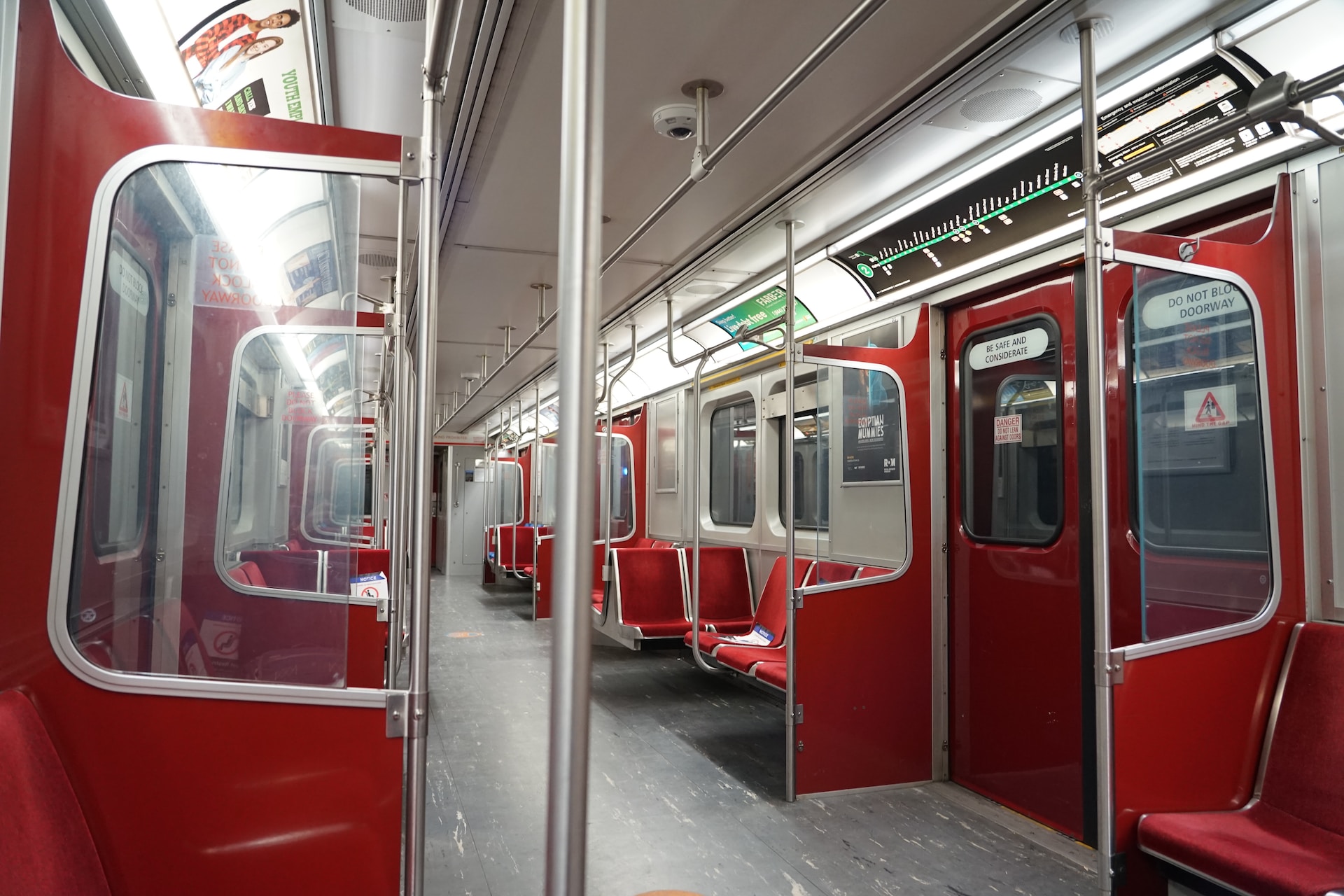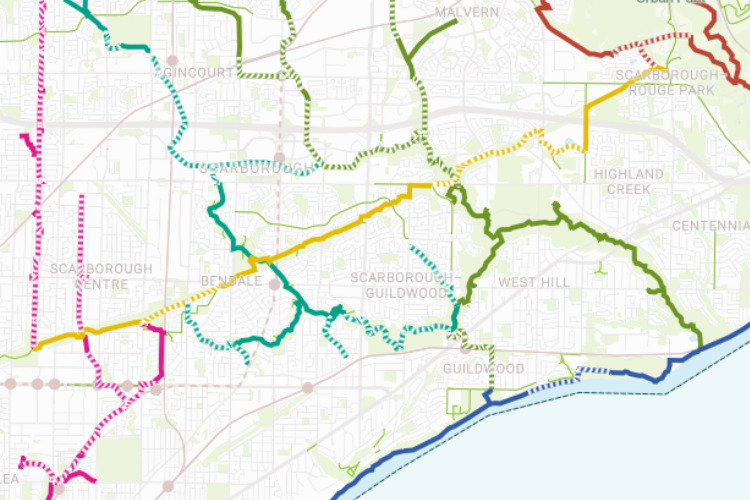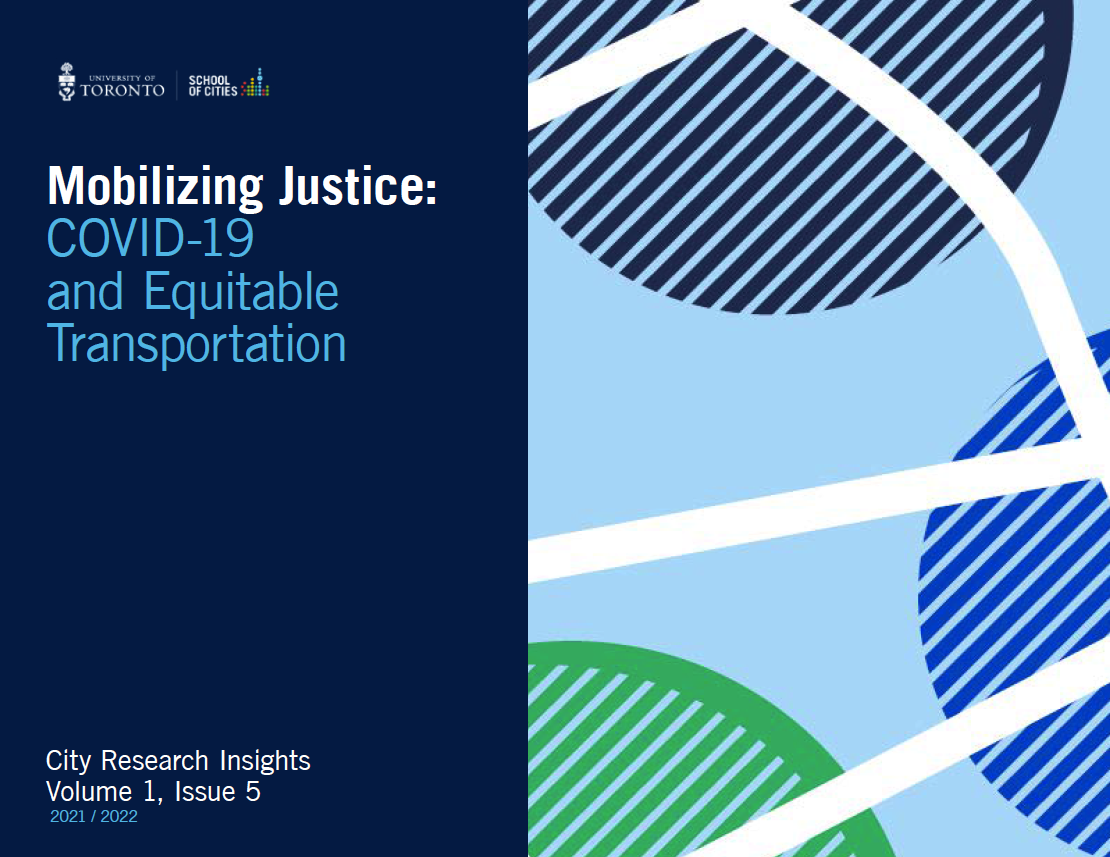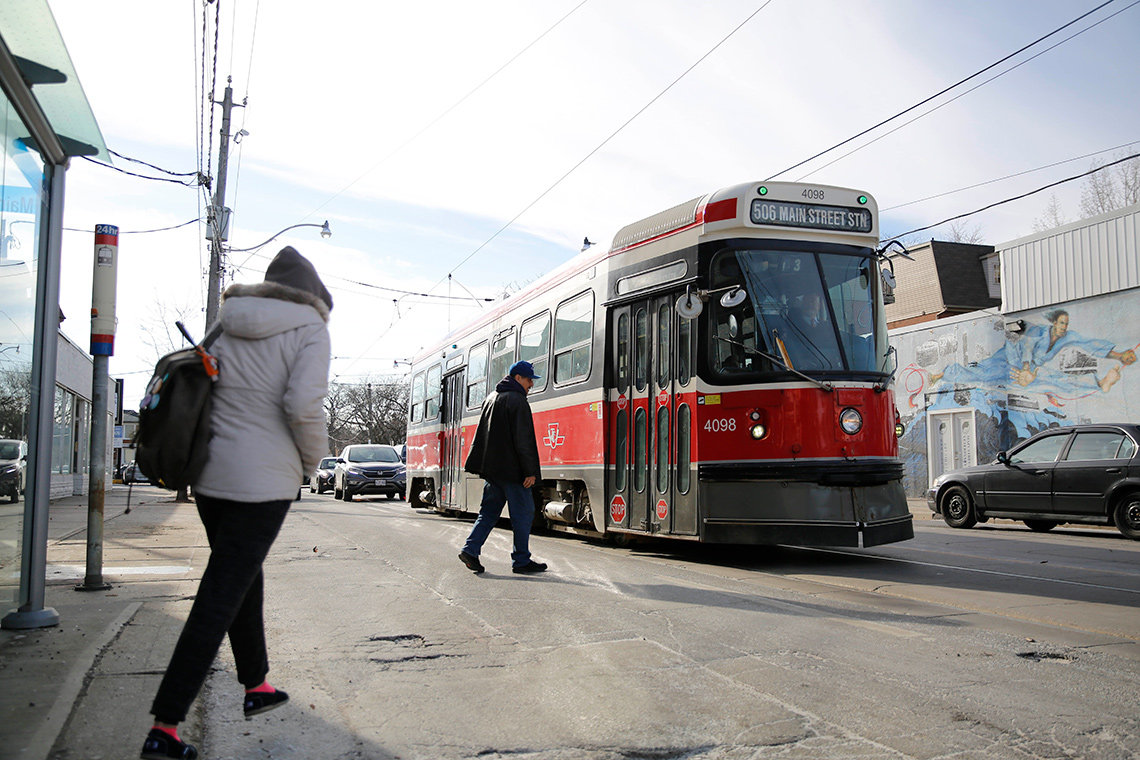Urban transportation networks are a key to creating viable, livable cities in the face of population growth. The COVID-19 pandemic shook up how, why, and where we move in our cities, and we are still dealing with the uncertainty of these changes. Through our networks and research, we look at how we can support mobility while protecting our planet, and address the transportation inequities in Canadian cities.
Mobility Network
The School of Cities partners with the Mobility Network, an affiliated initiative that brings together mobility researchers from across University of Toronto committed to seeing that, in this “First Urban Century”, mobility enables all people to achieve their potential while protecting our planet.


Mobilizing Justice
We also work with Mobilizing Justice, a multi-sector research partnership committed to solving transportation inequities in Canadian cities. The coalition includes 33 academics from 6 Canadian provinces and 3 countries, 14 government agencies, 7 transportation companies, and 7 non-profit organizations — all of whom are steadfastly committed to delivering equitable transportation systems.
News, Media & Research
Scarborough Greenway Network
An interactive map of the greenway routes from School of Cities’ Faculty Affiliate Professor Andre Sorensen and his research team’s report called The Scarborough Greenway Network: Building an outstanding offroad trail network.
Volume 1: Issue 5 | Mobilizing Justice: COVID-19 and equitable transportation

Matti Siemiatycki in BBC Online | Toronto struggles with wave of public transport violence
Steven Farber for Toronto Star | Toronto is on the precipice of a transit death spiral, but it’s not too late to steer us in a better direction
Stranded without transit? U of T researchers say one million urban Canadians suffer from ‘transport poverty’
If you can’t afford a car or Uber, and there’s no major public transit route in your neighbourhood, finding a job and keeping it can be an uphill battle.





